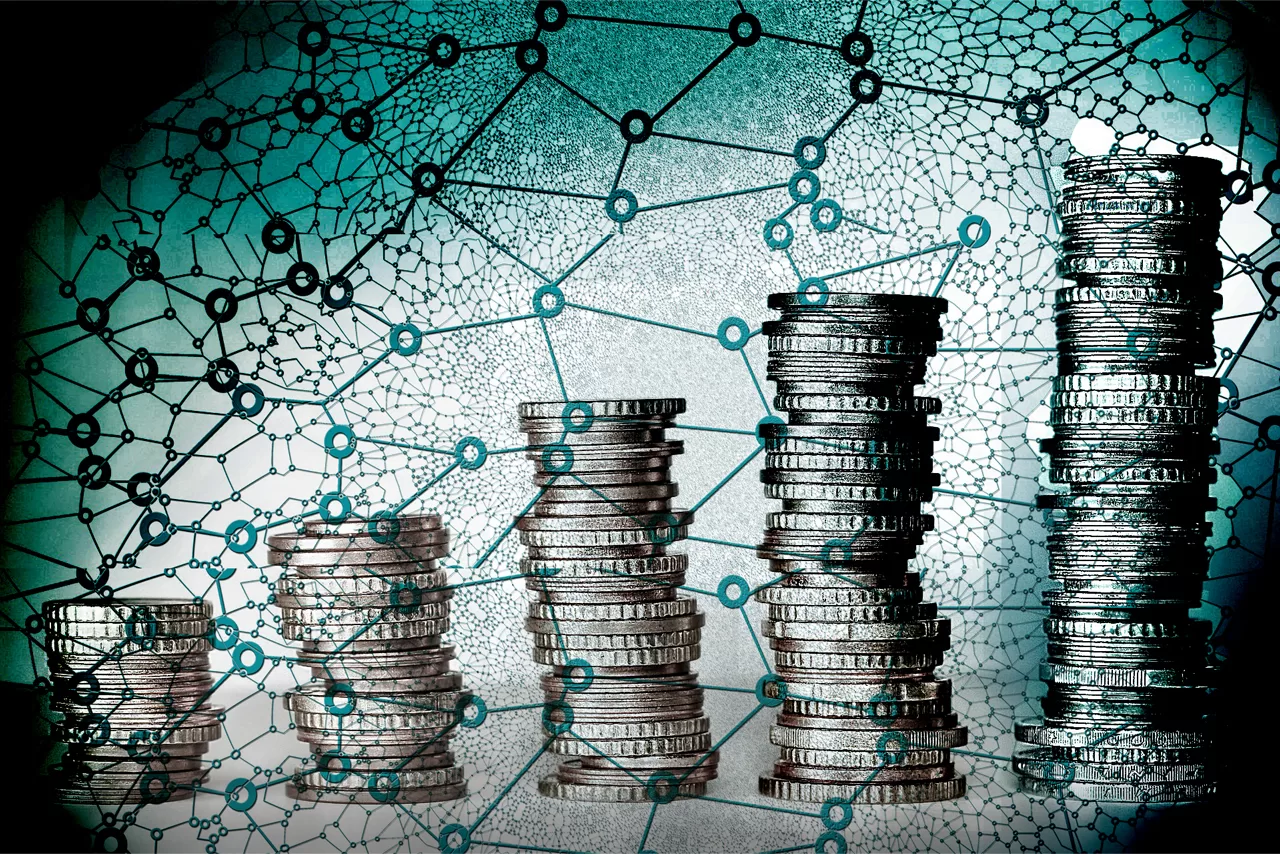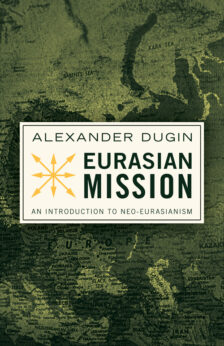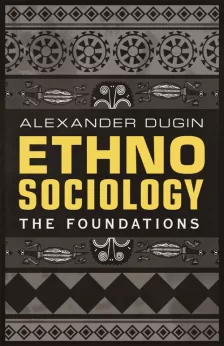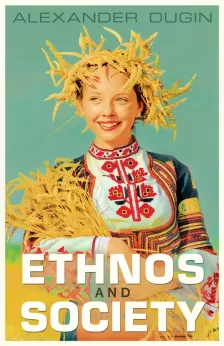In recent years thinkers of the Right have begun to speak of ‘enemies’ with a liberality that our fathers and grandfathers would surely find unnerving. We do not reserve this hard term, as they would, for mortal foes on some real field of battle, but extend it freely, not only at times to certain special ‘interest groups’ in our societies, nor even to the hyper-wealthy globalists, who are surely most responsible for the alteration and adulteration of our societies, but even in some cases to liberals themselves whose worldview makes the ascension of these former groups possible. For we are coming full into the awareness that the question of the regime under which we are destined to live represents a battle between principles which cannot coexist in one and the same social and political order. ‘Compromise’, that feeble ethic so adored by democratic man, is in any number of cases simply not possible to us: to use an expression borrowed from the very worldview we will here be critiquing, the conflict between differing visions of regime is fundamentally a ‘zero-sum game’.
Contents
Given the centrality of the liberal worldview in building this New Tower of Babble in whose shadow we all presently dwell, it cannot help but pique our interest to encounter a document written by unapologetic and exceptionally well-informed liberals in defence of their views. We allude to an essay appearing in The Economist a little over week ago, ‘The Economist at 175’, which the newspaper describes as a ‘manifesto for renewing liberalism’. In the spirit just mentioned, we propose to set forth a critique.
The Four Elements of Liberalism
The Manifesto recognizes four key elements of its worldview:
The first is that society is a place of conflict and that it will and should remain so; in the right political environment, this conflict produces competition and fruitful argument. The second is that society is thus dynamic; it can get better, and liberals should work to bring such improvement about. The third is a distrust of power, particularly concentrated power. The fourth is an insistence, in the face of all power, on equal civic respect for the individual and thus the importance of personal, political and property rights.
The claim that ‘society is a place of conflict’ is placed at the head of this list. But this is practically the last mention made of this provocative assertion in the entire course of the lengthy Manifesto. Given the growing ‘partisanship’ and patent ethnic, religious and political divisions within our societies, which are clearly exacerbated by various liberal policies and which in some cases threaten quite literally to tear our civil order apart, this silence is alarming, and we are tempted to say that it suggests a dearth of self-understanding on the part of the Manifesto’s liberalism.
No clear boundaries nor any definition are suggested for the ‘conflict’ mentioned. We can safely assume, given the general position of The Economist, that it does not extend to physical violence. Reference is made to ‘the right political environment’ as its precondition; the writers of the Manifesto are evidently aware that conflict as such, in the wrong kind of context, can lead to nothing but evil. The conflict they would promote is likely rather a conflict of goods and ideas: the economic ‘competition’ inherent to the free market on the one hand, and the intellectual contest in the ‘marketplace of ideas’ on the other.
The problem concealed by this formulation is none other than the problem of the ‘open society’ itself. The open society requires as its necessary precondition guarantee of freedom of speech. But freedom of speech means freedom of speech also for those who would destroy or transform the open society. So long as the proponents of ‘closed societies’ do not gain too much in authority or hearers, they present no threat; but in late days their influence has begun to menace many parts of the liberal West. The open society must therefore decide whether it will limit anti-liberal speech so as to defend itself, thereby ceasing to be the open society, or risk being undermined or revolutionized on account of the very freedom it holds to be most sacred: it must choose between suicide and the imminent threat of destruction. The proponents of the free society, if they are to follow the latter route, must either be secretly self-loathing, or must have total faith in two utterly dubious axioms: first, the absolute superiority of the free society over and above all other possible social orders; second, the power of the truth to emerge victorious from the free ‘conflict of ideas’.
The true believers here form a shrinking contingent within the wider ranks of liberalism, as is evidenced by the growing censorship of our times. Most liberals in our day adhere blindly to the first, but not the second of these two axioms; a few might have an uneasy conscience even as regards the first. Many so-called ‘liberals’ have been shaken in their dogmatic faith by the clear signs that their worldview is not unequivocally winning in the ballot boxes and referenda of the West: the bugbears of Trump and Orbán, Brexit and Salvini have shaken them from their doctrinairism. Because of their lack of faith, they have become unwilling to leave the fate of the open society in the hands of the ‘populist’ masses; they opt to betray the open society in order to preserve it.
This special conflict is but one of the most striking manifestations of the problem of liberalism in our day; others include the problem of tolerance (how deal with the intolerant?) and of the multicultural society (what to do with closed cultures which reject multicultural precepts?). All of these in turn are reducible to the inner and irreconcilable conflict between freedom and equality.
This pressing and urgent issue, which perhaps represents the crisis of liberalism in our day, is but skirted by the writers of the Manifesto. It is difficult to say to what extent this is the result of timidity, ignorance or strategy. We are forced to infer the position of The Economist from between the lines. Its writers state:
In America, Donald Trump’s pathological lying and constant attacks on the media as ‘enemies of the people’ and ‘fake news’ are taking their toll. But the fact-free world of paranoid fantasy that right-wing media provide for his followers is a bigger problem.
Well and good: and what is the solution to this ‘problem’? The Economist is strangely elusive. It continues:
So is the echo chamber afforded by social media – even when they are not being manipulated by foreign powers. By reinforcing people’s biases, they cut off the competition ideas need if they are to improve. At the same time they discredit the compromise that democracy needs.
Until the staff of The Economist are willing to rewrite their ‘Manifesto’ to make a few essential matters somewhat more manifest, we can only assume that ‘liberalism’ in our day would support the manipulation, guidance or soft censorship of ‘right-wing’ social media, which, according to the estimation of the worthy Economist writers, is surely neither ‘well informed’ nor ‘in good faith’.
But if this is so – and it is on the writers of The Economist or their liberal ilk to set forth some truly viable and truly liberal solution to the problem of irreconcilable worldviews in an open society – then one wonders indeed just how they hope to avoid ‘concentrated power’ in the hands of the censors (the third element of liberalism above), whether these censors be governmental or, as is more common in our day, corporate.
Though the connection is not drawn within the Manifesto, this last point is part and parcel of one of the problems which The Economist actually acknowledges as confronting liberalism today: the corporate concentration of power. The Economist is to be applauded for diagnosing the ills involved in this concentration, but its cure leaves much to be desired. In good liberal fashion, it seeks the solution to these dangers in laws and institutions. Yet the power of multinationals and even of certain extraordinarily wealthy individuals has become an international, a globalistic power; this means that it exists wholly or partially outside of the sphere of any specific nation’s laws. Changes in those laws or in those institutions can therefore only provide makeshifts for true solutions; sooner or later, these monstrous entities will find ways of mastering individual governments rather than being mastered by them, superseding the rules of the game by reinterpreting them.1 They are paid to do nothing else, and it is the fault of no one but the liberals that these hideous forces should have been unchained in the first place from morality and responsible governance which once constrained them. The solution cannot come via liberalism, because liberalism is the crux of the problem.
Liberalism, in its overweening hubris, will deny this. It will indeed posture as the one salvation, attempting to resolve these difficulties in the one way remaining to it: through the establishment of a liberal world order, a global or semi-global system of government, institutions and laws or regulations that are overarching enough to contain even post-national globalist entities. But it is precisely these entities which most fervently desire the advent of this world order, and this should tell us all we need to know about the probable face that such a global paradise would finally wear.
Progress and Decline
Surely the most evident feature of the liberalism The Economist espouses (and, we might add, a principle feature of liberalism as such) is the second element in its list above: its unwavering subscription to the ideal of progress. Consider but the newspaper’s own motto, which is repeated at the close of the Manifesto: ‘nothing serves liberalism better than “a severe contest between intelligence, which presses forward, and an unworthy, timid ignorance obstructing our progress”.’ In truth, nothing could more clearly reveal the biases of The Economist than such a neat division between an ‘intelligence’ which ‘presses forward’, and a ‘timid ignorance’ which is ‘obstructing our progress’. It is needless to say into which of these camps conservatism must fall – not to speak of Traditionalism! As the Manifesto itself ruefully observes:
Many liberals have, in truth, become conservative, fearful of advocating bold reform lest it upset a system from which they do better than most.
They must overcome that fear—or, if they cannot, they must be attacked by true liberals who have managed to do so.
Scepticism regarding ‘forward motion’ is evidently the mark of ‘fear’, ‘unworthy, timid ignorance’; one must be either a coward or an ignorant obstructionist to see anything disconcerting in the modern world order, anything questionable in our breakneck rush toward ‘improvement’. It is therefore altogether meet that we recall but several key reasons to doubt the reality or desirability of the ‘modern progress’ so touted by the economists:
- Hitherto, in the time before the democratic and industrial revolutions of the seventeenth and eighteenth centuries, poverty was regarded exclusively as the lack of the necessities in life; but we in our ‘progress’ have transformed any number of luxuries into yet further necessities, so that ‘poverty’ now extends to persons who do not have a car, a cellular telephone, a computer, a television, a refrigerator, etc. Far from eliminating material malcontent, our ‘progress’ has rather simply broadened and deepened it, and in our amazing material plenty we have but invented and then sharpened hungers which never previously existed.
- Hitherto, education was regarded primarily as cultivation in virtue, and secondarily as the preparation for a life-long craft or profession, which, given the care and expertise that were connected to them, were rightly regarded as arts; our ‘progress’ has transformed education into mere preparation for ‘gainful employment’, and supplanted the arts with increasingly ephemeral and technical ‘jobs’, which aim at productivity far above quality.
- Hitherto, money was regarded as a means to an end, and was thought best kept by men who were scornful of it; now, money has become the goal of goals, and even a marker of quality itself, as is presupposed in our concept of the ‘meritocracy’ – an economic system in which one’s rank is measured exclusively by one’s ability to convince other human beings to empty their pocketbooks into one’s own.
- Hitherto, writing was regarded as a higher form of language (a ‘Fathertongue’ as Thoreau put it), a deeper and more beautiful and more layered and potent kind of expression, and the relatively few men who were capable of reading, read in that spirit; now, with our much vaunted ‘universal literacy’, writing in many cases has degenerated even to a level beneath merest speech, and reading generally has reduced itself to an impatient and shallow form of fact collection, a radically inefficient version of that process our computers are programmed to perform.
- Hitherto, the laws were regarded as cultivation of excellence and training toward virtue; now, they are considered but the protection of ‘universal human rights’, which essentially makes of them a battleground for the laziness, complacency, greed and jealousies of base human beings.
- Hitherto, the arts were regarded as the finest flower of a society, and were protected and patronized by men of long-cultivated and exacting taste; now, the arts are considered a form of entertainment or advertising, and their patron is the mass, which is careless of beauty and contemptuous of cultivation, and judges all things on the basis of pleasure alone.
- Hitherto, the highest positions in society were filled by men who were born to them, and thus carried on their backs the full weight and expectations of age-long family lines, or else by men who were drawn to them vocationally, and thus filled them by virtue of their own special callings; now, these highest positions are filled by any Dick or Jane, who seek them out only because they crave the rank and mammon that flow from them, and who succeed in attaining them because they are unscrupulous enough to do whatever they must.
- Hitherto, it was understood that the gods infused the world, and worked through it and manifested in it in an immanent and perceptible way, and this divine presence governed and regulated the lives of men and the orders of their societies; now, men are made to understand that they need not the guidance of higher powers, but are thrust back wholly onto their own feeble, petty and fleeting desires and whims, and taught that these are the be all and end all of their lives.
To be sure, this quite incomplete list surpasses the narrow boundaries of the economic worldview. For none of these points is measurable: none of them can be scientistically or mathematically gauged. And it is indeed the final sign of the utter and resplendent decadence of our ‘progress’, that we are unable to take seriously any argument or critique which is not founded on ‘data’, ‘information’ or ‘scientific studies’ as if we ourselves were but robots or rocks, and the lives we lived, the societies we built, the cultures we cultivated, were but the accidental assemblages of so many mechanistic atoms.
Pragmatism and Economism
These reflections bring us to one of the primary underpinnings of the idea of progress: pragmatism, understood not as mere practical wisdom, but rather as almost a veritable worldview of its own. The pragmatism of The Economist represents an approach to human things which concentrates primarily on the use that can be made of them: it judges tools, ideas and virtues alike by their utility, and poses this utility as the measure of progress itself. This kind of pragmatism is essentially modern, and owes its birth to the general and generally failed attempt to render philosophy scientific, which was the peculiar drama especially of the seventeenth to nineteenth centuries. In a certain sense, this wild dream has yet to be abandoned: one of its final and most defensible redoubts is precisely in the study of economics.
Pragmatism tacitly ignores all aspects of its subject which cannot be reduced to mathematics. There are already profound doubts as to whether even the ‘inanimate’ world can really be understood in these stark terms;2 all the moreso, then, as regards living systems, and particularly human ones. Pragmatism, however, boldly casts off these philosophical concerns. It plugs this open question with the concept of the ‘standard of living’ in a country or a region (measured through median income, number of beds per hospital, length of life, life expectancy, average mortality rates etc.), positing this as the go-to model for understanding progress and decline.
The inadequacy of this as a standard of human progress is felt even by those who tend to refer to it most emphatically, and the present case is no different. The writers of The Economist are far from numb to what most liberals would view as the true gains made by liberalism in terms of ‘human rights’ and ‘social justice’; quite despite their acknowledged pragmatism, they, too, must make reference to fundamentally non-mathematizable values like ‘liberty’. Yet this is a problem to the economic viewpoint, for so long as there is need to recur to non-measurable values, one finds oneself adrift once more in the broad sea of philosophy, which these pragmatists fear and despise and fight away from with all the strength they can put into their oars. They must then find a way of measuring even the unmeasurable, locating ‘benchmarks’, ‘scales’, ‘rates’ etc., even for ‘abstract’ notions like liberty or civil rights. This is not the place to critique such attempts; suffice it to say, they depend decisively on the unspoken philosophical premise that human things are reducible to non-human things, which is generally taken for granted by economists, and true defence of which necessarily transcends the boundaries of science.
Given The Economist’s ‘results-oriented’ defence of liberalism, we are therefore not surprised to find the following remarks:
Our founders would be astonished at how life today compares with the poverty and the misery of the 1840s.
It is radically inadequate, not to say morally abhorrent, to identify poverty and misery on the one hand and wealth and progress on the other; and though we will not ascribe this facile view unequivocally to the writers of The Economist, nonetheless such crass reductionism is an orbit from which liberal pragmatism never wholly escapes. For it is well and good to claim that a good man may be poor and at the same time happy, or a bad one rich and at the same time wretched, but how to demonstrate such a proposition in the field of hard facts? Supposing one wants ‘objective’, meaning scientistic, data by which to judge of human progress, one must sooner or later reduce human happiness itself to quantifiable, and therefore material, terms. But happiness was classically understood (as for instance by the Platonic-Socratic equation ‘knowledge = virtue = happiness’, the Aristotelian eudaemonistic tradition and Epicurean hedonism) as the standard for overcoming the unprincipled love of materialism, of wealth or power or pleasure. Happiness, by the economic viewpoint, is made the lowly slave of those vulgar concerns it should permit us to transcend.
The economic reply, of course, is that without a measurable standard which depends on ‘objective facts’ and not ‘subjective values’, there can be no demonstrable standard of progress or decline whatsoever. This may well be so, but the natural retort is – and so? Are we to deny out of hand the possibility that human things are essentially irreducible to mathematical and scientific formulae, that the kind of debate the economists and liberals would obviate is in fact a necessary and inescapable part of the human condition? The accusation or insinuation that The Economist does not hesitate to make against conservatism, that it is actuated by timidity, might in fact be applied with equal justice here: for truly, it appears the part of the pusillanimous to avoid discussion of first and last things, and to attempt to supplant the ambiguities and deep problems of our condition with inapt mathematical structures and artificial economic models. It is, moreover, utterly unbefitting to the idea of seminal conflict which the economists are evidently supposed to embrace.
We claim with Nietzsche, to the contrary, that value is inseparable from fact, that it is the philosophical questions of value, wisdom, and virtue, and not the scientistic questions of ‘facts’, of ‘information’, of ‘standards of living’, which point to the most fundamental of human problems, and that without at least attempting to confront these problems, in all their radical difficulty and labyrinthine, sometimes terrifying complexity, this New Tower of Babble will inevitably collapse into an ant-like colony of squalid Last Men, governed by demonic plutocrats whose souls are seated irredeemably in their stomachs.
All Men are Created Equal
At a little deeper layer, beneath the lust for ‘progress’ which directs the economic and liberal worldview, we descry the hidden and secret root of the liberalism of The Economist, and indeed of our day as such.
As The Economist wrote on its centenary in 1943 (as quoted in the article ‘A Manifesto for Renewing Liberalism’) that it is ‘not only just and wise but also profitable…to let people do what they want’. Here we come to human equality, as embodied in basic human rights – the fourth element of liberalism identified by The Economist.
Indeed, the pragmatism we have just critiqued cannot provide, nor does it seek to provide, any standard by which one might discriminate between man and man. A simple example: in measuring wealth, the economist takes a rise in average incomes to be unambiguously good; he has no means of assessing the nature of the individuals who are granted this greater ‘spending power’, nor of judging the ways they might dispose of it. He does not differentiate between a good man who is granted a healthy stipend and a rogue who is granted the same. That moral difference, which would have been decisive to the Ancients, is merely elided over by the modern economist, and indeed disappears altogether in his calculus of the well-being of society. He must take each man as being equal to the next; but because men differ radically in what they seek and desire, he is forced to judge of the overall progress of human societies in the only terms which it he can validly abstract from those ‘subjective’ preferences: purely material terms, the ‘standard of living’, the ‘wealth of nations’. But it is only the lowest of men who judge of good and bad in terms of material things alone, which means that the economist is forced to view the world from the frog’s perspective, awkward and uncomprehending whenever he deigns to glance upwards, toward the right sphere of human existence.
The economist is thus an unworthy judge, an incomplete judge, a judge who, contrary to Iustitia herself, has his eyes open but his sword sheathed. It would be possible to constitute a society composed exclusively of extremely affluent, long-lived, healthy and legally unhampered, but spiritually empty, artistically numb, morally indifferent and philosophically ignorant masses, which would shoot to the top of any standard of living you please, and thus stand as the current model society for liberals of The Economist’s special stamp. But to say that a society like this would represent a pinnacle of human progress is an absurdity of the highest order.
This absurdity can be perceived, to be sure, only from a far higher view than that taken by the economist. It is only from a super-economic, super-scientistic, philosophical or spiritual, but fundamentally aristocratic standpoint that one can ever rightly critique the idea of egalitarian progress which has proved to be the motive force of the entirety of our Modernity. Only from such a perspective as that is one allowed to note that a country of rich and well-fed men who are incapable even of appreciating the great works or deeds of Western history, much less of reproducing anything resembling them, cannot be regarded as ‘progressive’ in the decisive sense. Only from such a perspective as that can we perceive that a society which has provided abundantly for all its citizens’ material well-being, but has not given the least prevision for the care of their souls, is fundamentally rotten and corrupt, no matter what GDP it might boast. Only from a perspective which consciously refuses the meretricious temptations of a mathematical and scientistic understanding of man, and which rejects the levelling instinct of our contemporary democratic and secular societies, can we ever hope to rise once more toward the true human heights, which have nothing to do with ‘standards of living’ and the petty middle-class ‘progress’ of liberalism. We owe to these heights alone every human achievement of real and transcendent worth in all of our history – and these arose, almost to a one, in societies which would make our ‘liberals’ tremble in rage and loathing.
Let us recall that the very word ‘progress’ itself in its present acceptation dates back to no hoarier epoch than the seventeenth century; it is a modern term in every regard. We, the men of the Right, refuse to speak in terms of ‘progress’, that mere ‘walking forward’ which might be a blind stumbling toward the abyss as well as not; we speak rather in terms of elevation, of discipline, of culture, of education, and above all of virtue. And by these standards, the very notion of economic or liberal ‘progress’ reveals itself for what it is: a precipitous plummeting downward, accompanied by the ravishing and unworthy delight in the fall.
We oppose ourselves yet more fundamentally to the egalitarianism at the bottom of the liberal worldview, and hold ourselves forth as champions of a most ‘illiberal’ ideal of human excellence. And against all of the modern etymological and linguistic confusions which beset our day, we do not shrink from asserting that, by the standards of a true human liberty, which can only be realized by the few and never by the many, we have a better right than the Mammonists of The Economist to refer to ourselves by that now wretchedly twisted, but once high and noble name, of liberal.3
Footnotes
1Consider the words of one pre-eminent globalist, George Soros (who is, incidentally, far from antagonistic to the ‘liberal’ viewpoints of The Economist): ‘I don’t play the game by a particular set of rules; I look for changes in the rules of the game.’
2This doubt has characterized both the earliest forms of science (many of the first protagonists of the scientific worldview considered science as a kind of grand experiment, and were even surprised by the extent of its early successes) and the lattermost (most of its current champions affirm that science is approximative and infinitely improvable model of reality; some even tend to suggest, à la Thomas Kuhn with his idea of the ‘paradigm’, that scientific theories cannot be evaluated in objective terms of truth or falsehood). This development should be taken as a symptom of the crisis in science that Husserl already identified in the last century. The basic failing in most critiques of science has been modernistic in nature: they have attempted to resolve the crisis in science by making philosophy scientific, whereas they should rather have sought the contrary. Philosophy must be reinstated to the throne of the human sciences, and the fundamental and irredeemable limitations of science must be recognized, and its boundaries decreed by a power which transcends them. Only then can the problem of science be resolved, by placing science at an appropriate level in the hierarchy of human knowledge, and limiting its research and its technological developments accordingly. The future hinges in part on our ability to control our unrestrained technological development in a timely way; but the extent to which science is presently given free reign, and the almost total failure on the part of our intellectuals to perceive the innermost problematic aspects of science itself, does not give one much room to hope.
3Scholars of Latin amongst my readers will know whereof I speak: the adjective liberalis meant, to the Romans, ‘befitting a free man’, which included in those finer days an unsubtractable element of human virtue: hence the word came also to mean ‘noble, magnificent, munificent, graceful, befitting a son of free men’, an acceptation which it retained well into the Middle Ages, and which began to fail only in early Modernity, on account of the latter’s attempt at a corrupting reformulation of the idea of human liberty. Some ghost of it yet lingers in the idea of a ‘liberal education’. Given its original sense, it is nothing but a travesty that the economists should call themselves liberals, not to speak of the progressivists and egalitarians of all stripes. The word belongs by rights to the men of the Right; had we the courage of our calling, we might learn how to reclaim it to ourselves – which would have the added virtue of preserving us from that particularly contemporary and reactionary fallacy, according to which we must oppose the idea of human freedom if we are to oppose Modernity itself.










This article itself is the basis of a ‘Manifesto of the Right’ in summarizing the major elements of Rightist thinking. Whiggery brought destitution and alienation to the former peasantry and artisans of Britain, as shown by William Cobbett for example, while Jacobinism had destroyed the free associations of crafts and burghers, likewise in the name of free trade. Charles Dickins dramatized the impact of free trade on England. It is typical that liberals offer solutions to problems of their own creation, or at least encouragement.